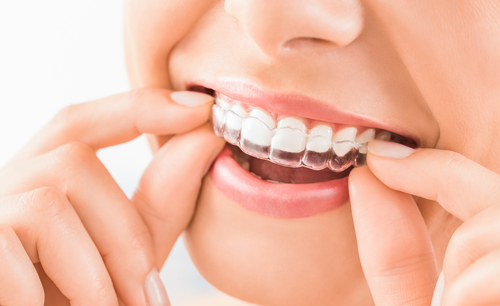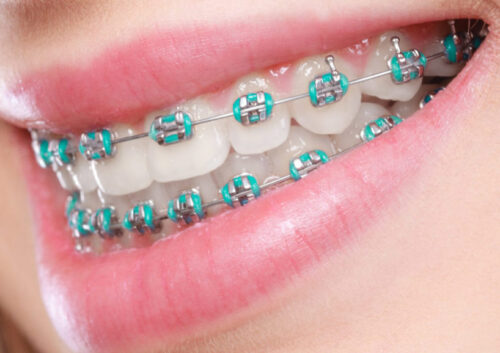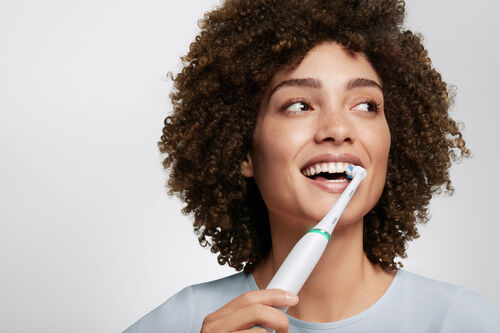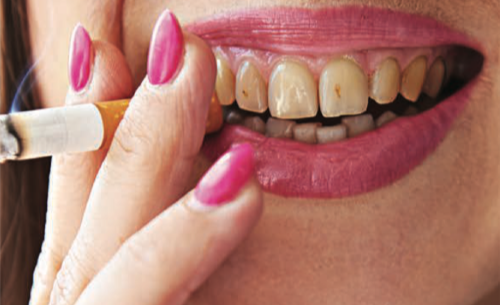CONTACT
Schedule an Appointment
Fill the form and schedule an appointment.
Book an Appointment
Error: Contact form not found.

Dental Tips Just For You
Providing Dental Tips To Help You Stay Healthy And Safe Before , Through And After Getting Your Ideal Dental Treatments In Our Clinic.

How do I clean my aligners?
It is important that you brush your teeth after each meal before reinserting your aligners. To clean the aligners it is recommended to use cold water with a toothbrush and liquid soap. You can also purchase special cleaning tablets to help with this.
How long does treatment take?
Treatment times vary for each individual. Treatment can last between 6-24 months depending on the severity of your bite, but for some people it may take longer. If you do not wear your aligner as instructed, then treatment will take more time.
What happens once my clear aligners treatment is completed?
When treatment is completed you will be asked to wear retainers to keep your teeth straight. Retainer wear is lifelong. Your orthodontist can discuss this with you in more detail.
What are clear aligners?
Aligners are a removable dental appliance made of clear plastic. They are used to gradually move teeth to straighten them.
When can they be used?
Aligners can be used to straighten the teeth and improve the bite. They may not always be suitable but an orthodontist can advise you.
How do clear aligners work?
Your orthodontist works with a laboratory who will straighten the teeth often on a computer model. They then make a sequence of aligners, that are changed every 1-2 weeks, which will gradually move your teeth to the desired position.
What are the risks of using an aligner?
The risks of clear aligners are similar to traditional orthodontic treatment. These include soreness of the teeth, irritation of the gums, failure to achieve the desired result, and return of your teeth to their previous positions if you do not wear your retainers. Moving your teeth will often shorten their roots slightly, and if you do not keep your teeth clean the tooth surface is at risk of decay.
Will I need to have teeth extracted?
In cases where your teeth are very crowded, teeth may need to be extracted to achieve a nice smile. If a small amount of space is needed to straighten your teeth, this can be achieved by filing the sides of some of the teeth (Interproximal Reduction). This makes the teeth slightly smaller so that they have more space to be aligned. However, most cases do not require either extractions or filing.
How often do I wear the aligners?
During treatment, you should wear your aligners all of the time except when eating, drinking anything other than plain water or brushing (more than 22 hours a day).
How often will I need to see my orthodontist during my treatment?
You will usually need to see your orthodontist every 6-12 weeks to monitor your treatment progress.
Are the aligners uncomfortable?
It is normal to feel some minor temporary discomfort for the first few days of wearing each new aligner. This is due to gentle continuous pressure used to move the teeth.
Will my speech be affected?
Speech can sometimes be affected when you start wearing aligners for the first few days whilst your mouth adjusts to them. This usually resolves after 3-5 days.
Are the aligners visible?
The aligners are made of a clear plastic material, without any metal wires, so they are not very noticeable when you wear them. You may be asked to wear attachments or elastics with your aligners, which can be more visible. Attachments are small amounts of tooth- coloured filling material attached to your teeth to help the aligner to move them.
What might I gain from orthodontic treatment?
The benefits of orthodontic treatment can include the following:
Correction of dental crowding and straightening of your teeth.
Correction of your bite so that the front and back teeth meet together evenly on closing.
Reducing the likelihood of damage to teeth that stick out.
Improving your appearance, including your smile.

Will I need to wear another brace once my treatment has finished?
Once the active phase of your treatment has been finished, it will be necessary to wear a retaining brace. This may be removable or it may be fixed behind your front teeth. The length of time this has to be worn can vary. Your orthodontist will advise you.
How often will I need an appointment?
You will need regular appointments
(usually every 4-8 weeks) during treatment for the brace to be adjusted.
What if I play contact sports?
It is recommended that you wear a gumshield. This will also be the case if you take part in activities requiring a protective helmet.
REMEMBER
Brush your teeth for 2 minutes at least twice each day.
Use an alcohol-free fluoride mouthrinse once every day.
Avoid sugary snacks and drinks between meals and at bedtime.
Avoid fizzy drinks.
Avoid hard, sticky and chewy sweets and foods.
Treatment will usually take 12 – 30 months.
You will need to wear retainers after your treatment finishes.
What do I do if my brace breaks?
Do not wait for your next routine appointment if your brace breaks, the breakage may slow your treatment or may result in damage to your teeth so call your orthodontist as soon as possible. If you repeatedly break your brace, your treatment may be stopped early.
Will it be painful?
It is likely to be sore for about 3 – 5 days each time the brace is adjusted. If necessary, simple painkillers such as the ones you would normally take for a headache should help. If the brace rubs your lips or cheeks, you can use some wax to help with this. Your orthodontist can give you further advice.
Can I remove the brace?
The brace you are now wearing is fixed to the teeth for the whole of your treatment. You should not try to remove it, as you may damage your teeth and the treatment will not work.
Can I eat normally?
Yes, you should be able to eat normally. However, for your orthodontic treatment to work well and in the shortest possible time, it is important that you take care of your teeth and brace.
In order to prevent damage to both, you should:
Avoid sugary snacks/drinks between meals and at bedtime.
Avoid sticky, chewy or hard sweets, mints and sugared chewing gum.
Avoid fizzy drinks (including diet drinks and sports drinks) and large amounts of fruit juice.
Avoid hard or chewy foods – such as apples, carrots and crusty bread – or cut them up first! These can damage your brace.
What about tooth brushing?
It is important that you brush your teeth well for at least 2 minutes, twice a day. Use a fluoride toothpaste. If possible, carry a brush with you for use after lunch.
Brushing may take a little longer when you have a fixed brace so take your time. Pay particular attention to brush where the gums meet the teeth. Inter-dental brushes may help you to clean around the brace and in between the teeth. An alcohol-free fluoride mouthrinse should also be used daily. Use it at a different time of the day to when you brush your teeth. This helps maintain the fluoride protection to your teeth. Avoid eating or rinsing for 20 minutes after use. Sugary snacks/drinks and poor cleaning of your teeth and brace will lead to permanent damage to your teeth.
How long will treatment take?
Usually about 12 – 30 months but this will vary according to how severe your tooth problem is. Missed appointments or repeated breakages of the brace will add to your overall treatment time.
Will I need to wear anything in addition to the fixed brace?
It may be necessary for you to wear elastics and/or headgear at some stage during your treatment. Headgear is usually worn in the evenings and at night. Elastics are worn inside the mouth during the day and night, including at mealtimes.
What might I gain from orthodontic treatment?
The benefits of orthodontic treatment can include the following:
Correction of dental crowding and straightening of your teeth.
Correction of your bite so that the front and back teeth meet together evenly on closing.
Reducing the likelihood of damage to teeth that stick out.
Improving your appearance, including your smile.

What happens if I keep damaging my brace?
Your dentist/orthodontist can offer advice.
If you regularly damage your braces, you will lengthen your treatment time. If you want to keep your orthodontic treatment time as short as possible, follow a diet of softer food to make sure that your braces do not break. A good balanced, healthy diet and excellent oral hygiene are very important during orthodontic treatment to maintain strong and healthy teeth.
REMEMBER
Avoid crunchy, hard or sticky foods.
Avoid sugary foods and drinks between meal times and at bed times.
Avoid fizzy and acidic drinks.
Limit fruit juice to meal times and drink it with a straw.
Check your braces regularly for any bent or loose parts (do not fiddle).
Brush your teeth for 2 minutes at least twice a day using a fluoride toothpaste. If you can do this after lunch too, then that is great!
If you are wearing braces, your diet is definitely going to need to change so you do not damage your teeth and your braces.
Food and plaque that are not cleaned off your teeth may lead to permanent and unsightly marks on your teeth and tooth decay.
You must think carefully about what you eat. Softer foods and a good balanced diet are important to successful orthodontic treatment.
What is tooth decay?
When you eat or drink anything (but particularly sugary items), the bacteria (plaque) in your mouth produce acid. This acid can make holes in your teeth (tooth decay). Your teeth will be under attack from this plaque acid for up to one hour after eating food or drinking sugary drinks.
Diet and braces
A careful diet is essential when you have braces. Braces and wires are fragile and eating the wrong foods can break your braces and/ or damage your teeth. Broken or loose braces will lengthen your treatment as your teeth will not move correctly with a broken brace.
Do I need to change my eating habits?
Choose foods which are softer. Soon after you get your braces fitted and sometimes when they are adjusted, you may want foods that need little or no chewing such as soup, pasta dishes, yoghurts and cheese. This is because the teeth will be more tender to bite on. This may last a few days. Cut up sandwiches, fruit and vegetables rather than biting into them.
Can I eat snacks?
Eating 3 meals a day instead of snacking is better for your health and teeth.
What food and drinks can I eat between meals?
Select healthy foods to eat if you are hungry between meals. These include: wholemeal bread, plain cheese, dry crackers, breadsticks, fruit and vegetables.
When you are thirsty, plain milk or plain water (not fizzy) are good choices. Fruit juices should be kept to mealtimes only.
Food and drinks to avoid during treatment
Common sense will usually tell you what foods to avoid but hard, sticky or crunchy foods can cause problems.
Sticky foods such as toffee, caramel and lollies must be avoided because they can loosen braces and break wires.
Hard and crunchy foods such as apples, raw carrot, pizza crust, nuts, biscuits, celery, chicken wings and spare ribs are best eaten by cutting them up into small pieces and chewing with the back teeth.
Fizzy and soft drinks, even the diet variety,
can cause damage to your teeth so should be avoided during treatment. Chocolates and sweets should be kept to a minimum and only eaten at meal times.

What about acidic foods?
Fruit such as oranges and lemons also contain acids, which can dissolve your teeth if you eat a large amount every day.
What can I drink between meals?
Plain still water and milk are best for your teeth.
What can I eat between meals?
Sugar free or low sugar foods are best. Suggestions include bread, cheese sandwiches, vegetables or fruit.
What else can I do to keep my teeth healthy?
Use dental floss or an interdental
brush each day to remove plaque from between the teeth.
Using a fluoride alcohol-free mouth
rinse at a separate time to toothbrushing can help reduce plaque, strengthen teeth and freshen breath.
Visit your dentist regularly to check that your teeth and gums are healthy.
Chewing sugar-free gum after meals reduces the risk of tooth decay.
Can smoking affect my teeth and gums?
Smoking causes tooth staining, bad breath, gum disease, tooth loss and mouth cancer.
REMEMBER
• Brush your teeth for at least two minutes, twice a day.
• Use a pea-sized amount of fluoride toothpaste.
• Replace your toothbrush regularly.
• Eat a balanced, healthy diet and cut down on fizzy and acidic drinks.
• Avoid sugary foods and drinks between meals.
• Visit your dentist every 6 months at least.
Keeping your mouth healthy is very important. By looking after your teeth and gums you can avoid tooth decay and gum disease.
What is tooth decay?
When you eat or drink something sugary, the bacteria in your mouth produce acid. This acid can make holes in your teeth (tooth decay).
What is gum disease?
Gum disease is caused by bacteria that stick to your teeth when you do not clean them properly. Dentists call this layer of
bacteria PLAQUE. If you leave plaque on your teeth, your gums will become red, swollen, sore and may bleed when you brush them. You may have bad breath. If gum disease is not treated the teeth will become loose and may eventually fall out.
How should I keep my mouth healthy?
• You should keep your teeth and gums clean. Good brushing is very important.
• You should avoid sugary foods and drinks between meals.
• You should cut down on fizzy and acidic drinks, including sports drinks.
How should I brush my teeth and gums?
• Brush your teeth for at least two minutes in the morning and again at bedtime.
• Use a toothpaste containing fluoride.
• Choose a toothbrush with a small head to help reach every part of your mouth.
• Brush every surface of every tooth.
• Make sure the bristles reach the part of the tooth where it joins the gum.
This is where plaque collects.
• Move the toothbrush in small gentle circular or scrubbing movements.
• Dental floss or inter-dental brushes may be helpful to clean in between your teeth. Your dentist or hygienist can show you how to use them properly.
• You can use disclosing tablets which contain a harmless dye to stain plaque, making it easier to see for removal.
Is an electric toothbrush better?
Using an electric toothbrush can be fun, but it will only work well if you use it properly. It is not a magic wand! Use the type of brush that works best for you.
Why should I avoid sugary foods and drinks between meals?
Every time you eat or drink something sugary, the bacteria in your mouth will produce acid. Acid attacks can last for up to an hour after eating or drinking.
The more often you eat or drink something sugary, the more likely you are to cause tooth decay. Try to cut down the number of times you have sugary foods or drinks by keeping these to mealtimes.
Avoid sugary snacks like cakes, sweets and biscuits between meals. Avoid sugary drinks like fruit squashes, natural fruit juices and milk shakes between meals.
Why are fizzy and acidic drinks bad for my teeth?
Fruit juices, sports drinks and fizzy drinks (even sugar-free ones) contain acids. These acids can dissolve the outer surface of the teeth (enamel). This is called erosion. The teeth become thinner and are more likely to chip. They may also become sensitive.
The more often you drink fizzy or acidic drinks, the more likely you are to damage your teeth.
Do yourself a favour and cut down on fizzy drinks.

Why is it hard to stop smoking?
Smoking can be hard to stop as cigarettes and tobacco contain a substance called nicotine which many smokers become addicted to.
How to stop smoking
Your doctor and/or dentist is a good place to help seek advice and support on how to stop smoking.
Medical Docotor may prescribe you nicotine replacement therapy/medications to help you in your journey.
What are the benefits of stopping smoking?
• Improved gum health.
• No smoking related bad breath.
• Improved blood pressure and pulse rate.
• Improved blood circulation.
•Reduced risk of getting any smoking related diseases.
Nearly 10,000 people die each year in Jordan from diseases related to their smoking habits.
Your dentist/orthodontist can offer advice and support about smoking cessation as it can affect your general and oral health long term.
FACTs about smoking
more than 66 per cent of Jordanian men and 17 per cent of Jordanian women are smokers
.
50% of all smokers will die from a smoking related disease including lung cancer, heart disease or stroke.
How can smoking affect my general health?
• Breathing can be affected by substances such as tar and other chemicals in tobacco which can damage your lungs. This can lead to frequent coughs and chest infections.
• Your immune system is weakened by smoking and does not work as well. This makes it harder for your body to fight infections.
• Long term smoking habits can lead to permanent damage to your lungs leading to chronic obstructive pulmonary disease or lung cancer.
• Carbon monoxide contained in tobacco smoke enters the blood stream which can reduce the oxygen carrying capacity of your red blood cells. This can lead to more strain on your heart and make you feel tired as a result.
• Blood vessels are known to narrow due to smoking which increases your risk of a heart attack or stroke.
• Pregnant women who smoke are at higher risk of damaging their unborn child.
• Passive smoking, also known as second hand smoking, is when you breathe in someone else’s cigarette smoke and this can also cause cancer and other health problems. Every year, second-hand smoking kills hundreds of thousands of people around the world from lung cancer, heart disease, stroke and lung disease.
How can smoking affect my oral health?
• Oral cancer, also known as mouth cancer, is where a non-healing ulcer develops in the lining of the mouth. This may occur in areas such as the tongue, cheeks, lips or roof of the mouth. It is linked to smoking, chewing tobacco products.
• If an ulcer has not healed within three weeks it is important to visit your doctor or dentist.
• Early signs of smoking can cause your gums to appear red, puffy and bleed when you brush your teeth. This is known as gum disease or gingivitis.
• Long term effects of smoking can cause the gums to shrink around the teeth and loss of bone holding the teeth in the jaw bone. This is called periodontal disease.
• Eventually the teeth may become loose, painful and may even fall out.
• Smoking causes bad breath.
• Your teeth will become stained yellow and brown as a result of smoking.

Lorem ipsum dolor sit amet, consectetur adipiscing elit. Ut elit tellus, luctus nec ullamcorper mattis, pulvinar dapibus leo.
Error: Contact form not found.

